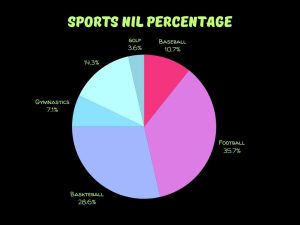
LONG FORM FEATURE TEST 2
In Iowa the leading cause of water pollution is agricultural practices according to Iowa DNR .
“In Iowa, sediment is the leading nonpoint source pollutant. Most sediment in Iowa comes from agricultural practices, such as cropland tillage and livestock in pastures, woodlands and feedlots,” Iowa DNR said.
With Iowa’s current economic practices and the nation’s continuous demand for animal products, this issue is further exasperated. According to Iowa Economic Development (IEDA), “Approximately 23.1% of Iowa’s manufacturing GDP comes from the food processing industry, and the state said to produce 7% of the nation’s food supply.”

The result of this is loose legislation that does not prevent large-scale farming methods from polluting waterways mainly CAFOs (Concentrated Animal Feeding Operations) which are the leading contributors to large-scale runoff of sediment and waste in our rivers, streams, and lakes. CAFO’s or Concentrated animal feeding operations are large-scale animal farming yards that have the main purpose of being as efficient as possible.
Iowa’s factory farms produce at least 108 billion pounds of manure every year, all without the oversight necessary to prevent contamination of surface and ground waters.
This substantial amount of manure that contaminates Iowa’s waterways contains massive amounts of nitrates and other nutrients that can cause algae blooms that harm lakes, rivers, and streams and can even cause the death of wildlife by decreasing amounts of dissolved oxygen and replacing it with excess nutrients essentially drowning fish and other forms of aquatic life underwater (Iowa DNR).
Animal products are not the only cause of this contamination the use of pesticides and other fertilizers rich in nutrients such as phosphorus nitrogen and other chemicals can also harm waterways. This is not only a problem for everyday Iowans it is a problem for Iowas farmers as well; With climate change the issue of runoff is only further stressed according to ISU
New and worsening weather is destroying farmers lively hoods as it causes these fertilizers to be washed away into bodies of water worsening water quality and preventing these fertilizers from helping crops grow as shown in a recent study by Iowa State (ISU). The study went to show Harm to waterways is not the only effect on Iowans, Iowans are subject to these various chemicals and nutrients when they are found in drinking water which can cause cancer in fact “Iowa’s portion of cancer cases is 150% greater than its portion of the national population” which can be attributed to the quality of drinking water.
According to a new body of research by the Iowa Environmental Council “the nitrate standard of 10 mg/l may not be protective enough for people’s health”. The result of loose economic and environmental legislation on agriculture that is destroying water ways, wildlife and the health of Iowans. Although the existence of a lack of legislation there is still hope Iowa Politicians have introduced a Clean Water Act which would force large-scale CAFOs to be required to get water pollution permits which is a standard practice in states such as Minnesota which has nearly three quarters of the states factory farms under this water pollution permit system (Food & Water Watch).

Cooper Hamilton 26’ enjoys spending her summers in the outdoors of Northeastern Iowa at Camp Wapsie. The summer camp hosts many activities such as swimming, and outdoor sports including archery, climbing, canoeing, and most notably the sport of “gaga ball”.
Wapsie hosts weeks of activities throughout the summer but Iowa’s water pollution is threatening that fun.
“It was hard to canoe with all of the algae; The water is so full of algae that when you come out of the water, you’re just covered in green and brown,” Hamilton said.
With the rising amounts of nitrate runoff, algae blooms throughout the state have been threatening recreational activities such as canoeing and even fishing.
With these recent concerns with water pollution and the increasing level of nitrate runoff throughout the state, the concern about water pollution and awareness is a steadily growing issue
Ephram Byler 25’ has a farm on the outskirts of Iowa City that he says water pollution is affecting like so many other Iowans.
“Well, I have a farm. So when we were building a pond out there, we had to take into consideration the watershed from the surrounding areas to keep it from getting runoff from the fields. We had to build it in a natural dip in the land that was higher than the surrounding area because otherwise, we wouldn’t have been able to fish out of it. After all, it would all have been contaminated.” Byler said.
With these concerns of water contamination multiple sources can be blamed but what Byler says is the biggest issue is nearby farms and the potential runoff of chemicals such as Roundup and 24D used typically in an agricultural setting to kill off weeds and unwanted plants that harm agriculture practices.
“The fields around the pond use things like Roundup and 24D, and those would have ran off of the fields into our pond killing and mutating the fish, it wouldn’t have been safe to kayak, swim, etc. We had to consider that”
CAFO, or Concentrated Animal Feeding Operations are large-scale farming operations that confine animals to be as cost-effective as possible. They pollute and heavily expose waterways to excess nutrients and chemicals.
“It’s where animals are packed into a building and it’s essentially how you raise the most amount of livestock in the least amount of space. It’s gross. It’s bad for the animals but in the context of what we’re talking about, it creates an incredible amount of waste in a very small area, and that actually will leach into the ground and what is left they dispose of in an unsavory manner.”
Another main problem Byler is concerned with is the potential impact this has on local waterways such as the Iowa River and bodies of water such as Lake McBride just outside of Solon IA along with the potential threat this can pose on the health of the community.
“Recreational use of your water needs to be protected from runoff watersheds from fields and CAFOs. Since we live in Iowa, all of our drinking water has to be heavily filtered because of how the runoff from the fields affects the water table. We live in a state with a lot of chemical farming implements and that’s really just not good for drinking water. As far as the pesticides and insecticides, I know people who have gotten cancer from using farm implements, and not even ingesting them”
Along with this CAFOs are not helping the issue of water pollution in our state. A recent nitrate spill due to a farming co-op has left the surrounding waterways devastated according to a recent article in the Des Moines Register “The spill is the result of someone at NEW Cooperative leaving open a hose valve that leaked about 265,000 gallons of liquid nitrogen fertilizer, said Wendy Wittrock, a senior environmental specialist for the DNR.”
When asked about this recent environmental disaster Ephram had this to say
“It’s detrimental to our local ecosystems. It’s detrimental to all the animals that live in the river. All the animals that drink from the river, especially as they all link and connect to all the other waterways in the area”




Your donation will support the student journalists of Iowa City High School. For 2023, we are trying to update our video and photo studio, purchase new cameras and attend journalism conferences.








